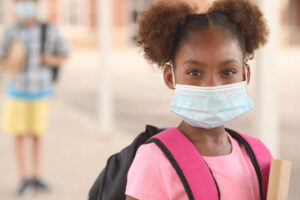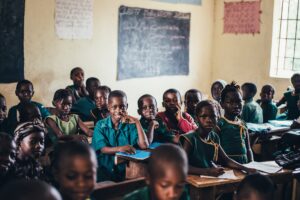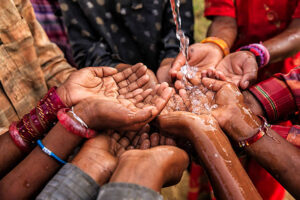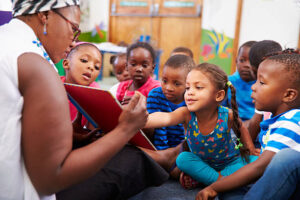


Our covid-19 response has seen the distribution of key prevention messaging and provision of hygiene supplies reaching over 2000 children, including the support of street connected children who represent some of the most stigmatized and marginalized children in Nigeria.
Nigeria is a high risk country for COVID-19 due to its relatively weak health system and challenging contexts (e.g. in informal settlements where self-isolation is near impossible). With the virus now spreading through communities according to the Ministry of Health, the situation could now deteriorate rapidly.
Global support for kids initiative is focusing on marginalized and vulnerable children. Children are facing increasing protection risks due to the impact of COVID-19 in Nigeria.
Loss of income, loss of or ill caregivers may force many children to beg for food, take hazardous jobs to support their families, or see their families split up in search of food, leaving them alone, unprotected and exposed to violence, abuse and exploitation. Families may be forced to marry off their younger daughters to wealthier families to help relieve the financial pressures at home, exposing them to sexual abuse and early pregnancy. The situation is compounded following the Government control measures to close all schools meaning children are left without a vital safeguarding support.


A Child-Centred Approach COVID-19 will have serious effects on already vulnerable children (e.g. those battling with pneumonia, malaria, malnutrition) and the knock on effects of the virus for things like education and child protection will be severe, with the impact felt for years to come.
Global support for kids initiative adopts a child-centred approach to our programming, involving children, their families and the community to best understand what will result in the biggest impact for children and keeping children safe. We are doing the same in our response to COVID-19. Key strategies include:
Communicating child-friendly age-appropriate information so that children understand and implement steps to keep themselves and their community safe from infection.
Consulting and engaging children in our response, through rapid assessments and ‘pulse checks’ with children so we can better understand and respond to their issues and they themselves can take the lead on issues affecting them.
Scaling up child protection services by building the capacity of the social service workforce, community child protection networks, and health system to ensure child abuse cases are reported and responded to, and adequate counselling and psychosocial support is provided.
Advocating with duty bearers, together with other civil society organizations and children themselves, to ensure the issues of children are considered in all stages of the COVID-19 response.
Ensuring vital lifesaving services for children: We are working creatively and innovatively to adapt programs that will ensure lifesaving services continue for the most marginalized children. This will help mitigate adverse effects of the COVID-19 virus on children.
What We’re Doing Overall To Tackle COVID-19 Providing age-appropriate integrated health, hygiene, and child protection information: messaging to the communities through mass media, information materials, and through our existing community networks to counter misinformation and mitigate the risks related to COVID-19
Training & equipping: developing strategies to protect them from infection such as providing protective wear and developing guidelines for virtual trainings.
Maintaining life-saving nutrition and health programming throughout the crisis making adaptations where needed in the face of COVID-19. Hygiene product Distributing soap, hand sanitizers and hand washing facilities to the street children
Child Protection and Education: Provide psychosocial support and respond to violence and abuse of children. Lead back to school campaigns when the worst is over to make sure that the most vulnerable children return to, and stay in school.
Engaging and motivating the street children to make soap, masks, sanitizer that can support the emergency response and provide an income Provide cooked food, raw foods for the street and vulnerable children during and after the pandemic. We have done tremendously and still willing to do more for the betterment of the marginalized and vulnerable children in our society.

Providing vital information regarding available resources to meet their needs, including education, health and other support services

Providing food, clothing, hygiene products, blankets and other comfort items.

Harm reduction counseling to address the risk associated with street life.